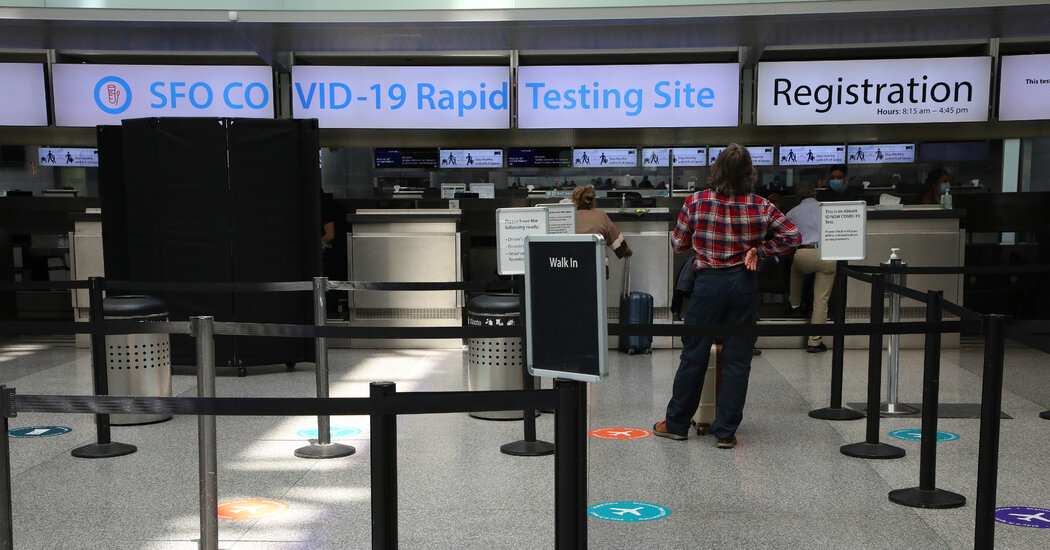As coronavirus testing continues to decline in the United States, public health experts are warning that the trend will make it more difficult for the country to identify outbreaks and track the spread of highly contagious variants.
Daily coronavirus tests in the United States peaked in mid-January at about 1.8 million. Since then, the number has dropped by more than half, to an average of about 700,000 tests per day, according to a New York Times database.
Experts say that part of the decline is due to vaccinations, which have shrunk community spread. Fewer people experiencing symptoms means that fewer need to be tested. But the experts also say that pandemic fatigue is a likely contributor.
Virus variants are spreading across a U.S. population that is only 43 percent fully vaccinated. With states reopening and travel resuming, experts say that collecting accurate data remains essential to fighting the virus.
“We’re not over this,” said Dr. Susan Butler-Wu, an associate professor of clinical pathology at the University of Southern California. “Testing is really critical, because you are flying blind without it.”
That is especially true in parts of the American South, where vaccination rates are low, Dr. Butler-Wu added.
Testing has declined despite being far more widely available than at the height of the pandemic in 2020, when Americans sometimes waited hours for them, then spent days or weeks waiting for results. The wide availability of antigen tests means that results can now arrive in as little as 15 minutes.
Experts urge those who are not vaccinated or remain at high risk because of underlying health conditions to continue to get tested. But they warn that frequent testing is not a substitution for vaccination.
Without a vaccine, “you’re putting yourself in harm’s way,” said Michael Osterholm, an epidemiologist and the director of the Center for Infectious Disease Research and Policy at the University of Minnesota. “This virus will find you if you are not vaccinated, and you continue to have contact with people throughout the community.”
Experts in testing and public health say the virus will become endemic, meaning it will circulate at low levels for the foreseeable future. Mara G. Aspinall, a professor at the College of Health Solutions at Arizona State University, said some in the field are discussing other methods of testing to track outbreaks, including examining wastewater for signs that infections might be present in a community.
Source: Read Full Article





